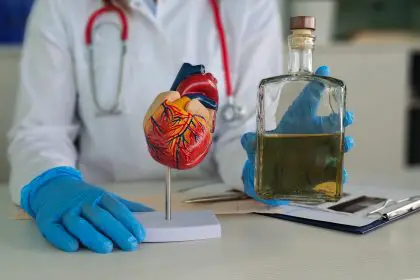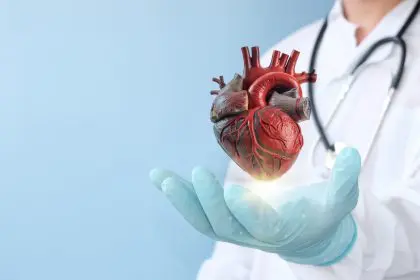Women’s health is a topic that demands attention, not just from women but from society as a whole. With the myriad responsibilities women juggle daily — from careers to families — personal health often takes a backseat. However, certain health issues cannot be ignored, as they can have significant, long-lasting effects on a woman’s overall well-being. Recognizing and addressing these issues early can make all the difference in leading a healthy, fulfilling life. This article highlights five vital women’s health issues that should never be overlooked. By understanding these issues, women and those who love them can take proactive steps to safeguard their health, empowering themselves to lead longer, healthier lives.
1. Heart disease: A silent killer among women
Heart disease is often perceived as a predominantly male issue, but it is the leading cause of death among women in many parts of the world. The signs of heart disease in women can be more subtle and less recognized than in men, making it even more dangerous. Women may experience symptoms like fatigue, shortness of breath or chest discomfort that can be mistaken for less severe conditions.
Recognizing the signs
It’s crucial to recognize the early warning signs of heart disease, which can include:
- Unusual fatigue: Persistent, unexplained fatigue could be a sign that your heart is struggling.
- Shortness of breath: If you find yourself easily winded during activities that used to be effortless, this could be a red flag.
- Chest discomfort: Unlike the classic crushing chest pain often associated with heart attacks in men, women might experience a squeezing or fullness in the chest that comes and goes.
Emotional impact
The emotional toll of heart disease is profound. Many women who have survived heart attacks report feelings of fear, anxiety and depression. Understanding that these emotions are normal and seeking help can be a critical part of recovery. It’s important for women to prioritize heart health by staying active, eating a balanced diet and monitoring their heart health regularly.
2. Breast cancer: Early detection saves lives
Breast cancer is one of the most common cancers affecting women. While it is a serious diagnosis, early detection can significantly increase the chances of successful treatment. Regular self-examinations and mammograms are vital tools in detecting breast cancer early.
Importance of screening
Mammograms and regular breast exams are essential. Women over the age of 40 should have annual mammograms, but those with a family history of breast cancer might need to start earlier. Early detection can prevent the cancer from spreading, making treatment more effective and less invasive.
Coping with the diagnosis
A breast cancer diagnosis can be overwhelming, but it is not the end of the road. Emotional support from family, friends and support groups can make a significant difference in coping with the challenges of treatment and recovery. Many women find strength in their communities, sharing their experiences and supporting each other through the journey.
3. Osteoporosis: Protecting your bones
Osteoporosis is a condition that weakens bones, making them fragile and more likely to break. This disease is particularly prevalent among women, especially postmenopause, due to a decrease in estrogen levels that help maintain bone density.
Preventive measures
Preventing osteoporosis starts with lifestyle choices. A diet rich in calcium and vitamin D — along with regular weight-bearing exercise — can help maintain strong bones. Women should also avoid smoking and excessive alcohol consumption, as these can contribute to bone loss.
The impact of fractures
The consequences of osteoporosis can be life-altering. Fractures — especially of the hip or spine — can lead to long-term disability, loss of independence and even premature death. The emotional toll of dealing with chronic pain and reduced mobility can lead to depression and anxiety, making it all the more important to take preventive steps early on.
4. Reproductive health: Beyond fertility
Reproductive health encompasses more than just fertility. Conditions such as endometriosis, polycystic ovary syndrome (PCOS) and uterine fibroids are common but often go undiagnosed. These conditions can cause significant pain, disrupt menstrual cycles and affect overall health.
Understanding endometriosis and PCOS
Endometriosis occurs when tissue similar to the lining inside the uterus grows outside the uterus, causing pain and potentially leading to infertility. PCOS is a hormonal disorder causing enlarged ovaries with small cysts on the outer edges. Both conditions can have severe implications for a woman’s health if left untreated.
Emotional and physical well-being
The chronic pain and hormonal imbalances associated with these conditions can lead to emotional distress, impacting mental health. Women experiencing these issues should seek medical advice and consider both medical and lifestyle interventions to manage symptoms effectively. Awareness and education about reproductive health are crucial in ensuring women receive the care they need.
5. Mental health: Addressing the invisible wounds
Mental health is a critical aspect of overall well-being, yet it is often overshadowed by physical health concerns. Depression, anxiety and stress-related disorders are prevalent among women, who often bear the brunt of caregiving responsibilities and societal pressures.
Recognizing the signs of mental health issues
Mental health issues can manifest in various ways, including:
- Persistent sadness or anxiety: These feelings may interfere with daily activities and relationships.
- Changes in sleep patterns: Insomnia or excessive sleeping can be indicators of mental health struggles.
- Loss of interest in activities: A lack of pleasure in activities once enjoyed can signal depression.
The importance of seeking help
Women should never feel ashamed to seek help for mental health issues. Therapy, medication and support groups are valuable resources. Additionally, self-care practices such as regular exercise, mindfulness and maintaining social connections can help manage stress and improve mental well-being. The stigma around mental health must be dismantled, and women should feel empowered to prioritize their mental health just as they do their physical health.
Why women’s health is a social issue
Women’s health issues are complex and multifaceted, requiring attention, awareness and proactive management. Ignoring these vital health concerns can have serious, long-term consequences. By staying informed and taking charge of their health, women can lead longer, healthier and more fulfilling lives. It’s not just about preventing illness but about nurturing a holistic sense of well-being that includes physical, emotional and mental health. Remember, your health is your most valuable asset; take care of it.
Prioritizing these five health issues is essential for every woman. By being vigilant and proactive, you can take control of your health and ensure that you are doing everything possible to live a long, healthy and happy life. Don’t wait until it’s too late — start taking action today.
















